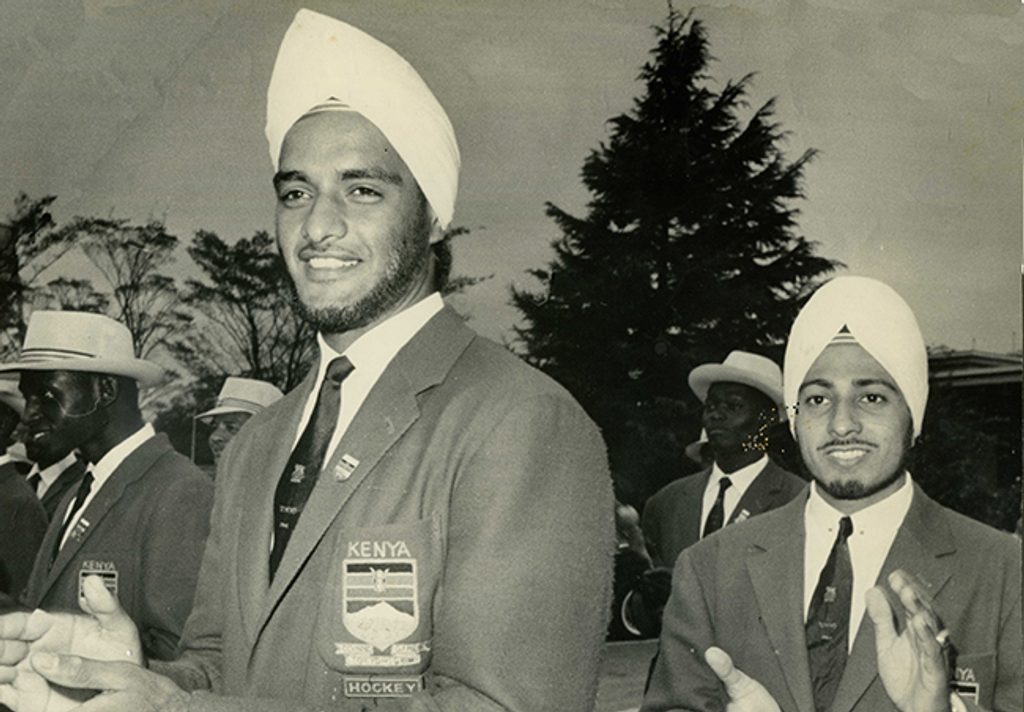
When you think of hockey powerhouses in the 21st century, you tend to think Netherlands, Argentina, Australia and India; however, back in the 1960s, one of the top teams in the world was the East African nation of Kenya.
Kenya appeared at every Olympic Games from 1956 until 1972, with two further appearance in 1984 and 1988. The team’s best finish was sixth in 1964.
Captain of the Kenyan team in 1964, 1968 and 1972 was Avtar Singh Sohal, now 78 years old but as devoted to the game as he always has been. Sohal is revered in his adopted country of India, where he is known as ‘Tari', and has been described by journalists and hockey fans as the greatest Indian sportsperson of all time outside India.
"After watching magician Dhyan Chand in a match, I developed a keen interest in hockey. His dribbling and dodging were out of this world."
Avtar Singh Sohal, Kenya
The Indian hockey family’s devotion to Sohal is mirrored by the Olympian’s love for his adopted country. “I came here [to India] with the Kenyan side in 1962 for the first time to play test matches against the Indian side,” says Sohal. “When I reached the Bombay airport, I touched the pious soil of India. That feeling cannot be described in words.”
Sohal played for Kenya 167 times between 1957 and 1972, competing in four Olympic Games. While he was intensely proud of Kenya’s performances at those Olympic Games, the thing that still sticks in his mind was the terror attack at the 1972 Munich Olympics, when 11 Israeli athletes were killed, along with a German police officer. Even now, the memory can bring tears to the eyes of this compassionate man. 
One of Sohal’s best memories however is associated with the 1971 World Cup, where the team came close to securing a bronze medal, eventually losing 2-1 to India. Kenya’s goal in that match was scored by none other than Sohal.
It was inspiration from another Indian hockey icon that first caused Sohal to pick up a hockey stick rather than a cricket bat. Sohal explains: “I still remember when the Indian hockey side came to Kenya in 1948 under the captaincy of Dhyan Chand. Those were exciting times. After watching magician Dhyan Chand in a match, I developed a keen interest in hockey. His dribbling and dodging were out of this world. My father had also encouraged me to play hockey rather than cricket.”
A Sikh himself, Avtar Singh Sohal says that it was people from India, especially Sikhs, who introduced hockey to Kenya. Mahan Singh was elected President of the Kenya Hockey Union in 1957 and the Sikh Union Club of Nairobi was the backbone of the Kenya national hockey team. The Sikh Union Club supplied the majority of players in the national team and won most of the domestic trophies in the 1950s, 60s and 70s.
After Sohal retired from the international scene, he took up coaching and was the Kenyan national coach from 1978-88, coaching the team at the 1984 Olympics in Los Angeles. He also took up umpiring and was awarded an FIH International Umpires badge in 1980. Sohal was a judge at the 1988 Seoul Olympics and was appointed to the FIH Development and Coaching Committee in 1988. With his love for the game undimmed, Sohal was a keen spectator at the Rio Olympic Games, cheering on India in the absence of his home country.
“I cheer for the Indian side when they play against any other side except Kenya," he says with a smile.
Despite less involvement in the sport on a day to day basis, Sohal still plays a key role in the Internaitonal Hockey Federation's (FIH) 10-year Hockey Revolution strategy. Role models from past and present have a crucial role to play in helping hockey become a global game that inspires the next generation - the main aim of FIHs strategy.
For more information about hockey in Kenya, visit the Kenya Hockey Union Facebook page.
For more information about hockey in India, visit Hockey India's website.
Photos courtesy of Sikhs in Hockey.
#LoveHockey























